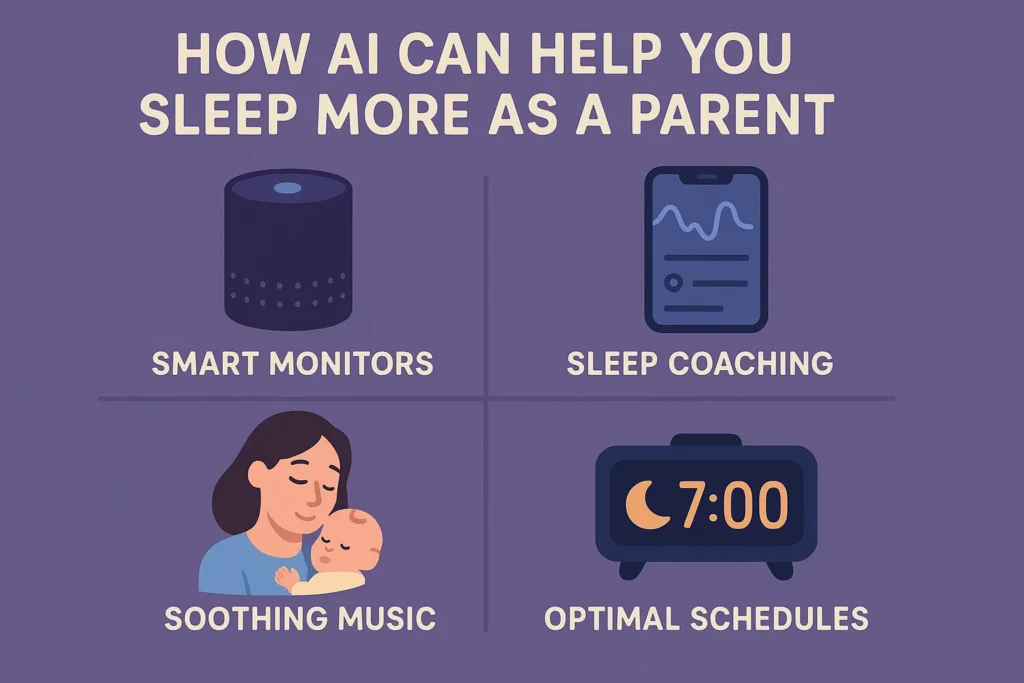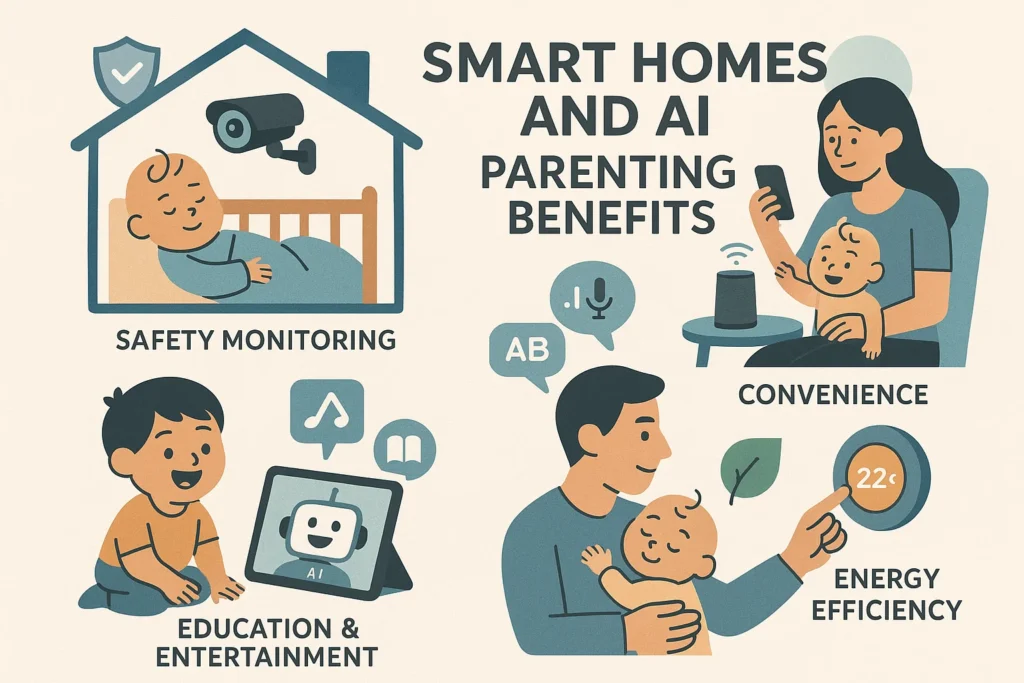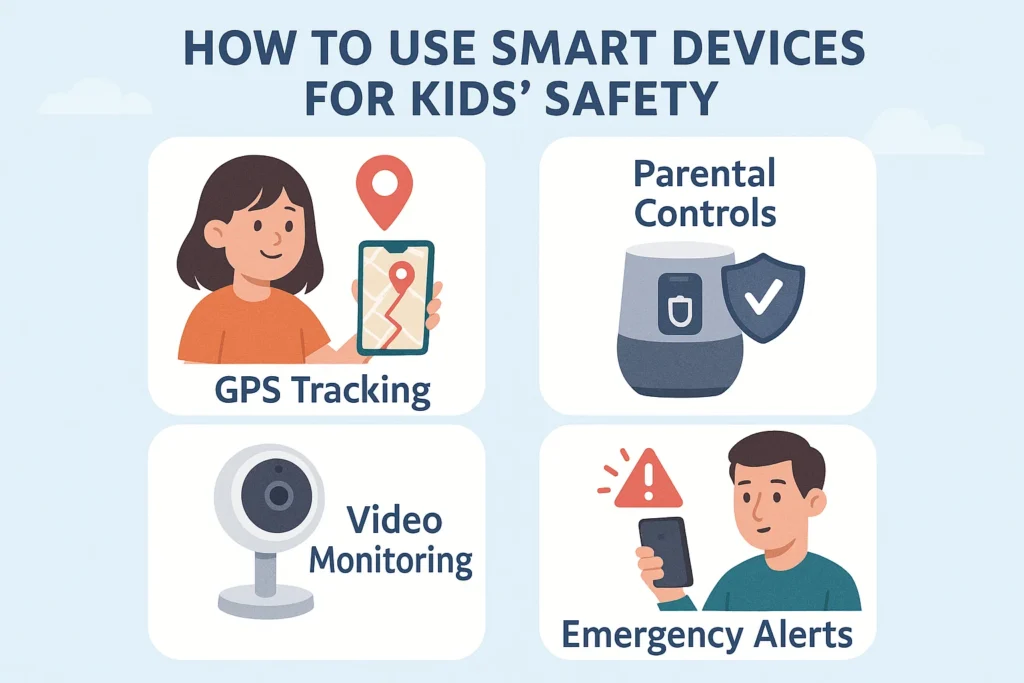Introduction
Ai Blogquest.com Parenting often comes with sleepless nights — from feeding schedules to worrying about your baby’s comfort. But with AI sleep for parents, technology is finally lending a hand to help moms and dads rest better. Artificial Intelligence can monitor your baby, automate your home, and even optimize your own sleep cycle, making life a little more peaceful.
1. AI Baby Monitors for Restful Nights
AI-powered baby monitors like Nanit or Cubo AI can analyze your baby’s sleep patterns, breathing, and movement. They send instant alerts if something seems off — so you can sleep knowing your child is safe.
Why it helps: You don’t have to stay awake all night watching the monitor. AI does it for you.
2. Predictive Sleep Scheduling Apps
AI sleep apps use your data to recommend the best sleep and wake times. For parents, apps like Huckleberry track both your sleep and your baby’s schedule, helping align your rest periods efficiently.
Tip: Sync both parents’ schedules in the app to maximize shared downtime.
3. Smart Lights and Temperature Control
AI-connected lighting systems can dim automatically when it’s bedtime and gently brighten in the morning. Similarly, smart thermostats adjust room temperature based on comfort data, helping both parents and babies sleep soundly.
Example: Set a “Sleep Mode” routine using Alexa or Google Home to dim lights, lower temperature, and play white noise.
4. AI Sound Machines for Calming Nights
Modern sound devices use AI to learn your baby’s crying patterns and respond with soothing sounds before you even reach the room.
Why it helps: Fewer midnight interruptions mean deeper, more restorative sleep.
5. Sleep Coaching with AI Insights
AI-driven sleep trackers like Oura and Fitbit Sense don’t just monitor your sleep—they analyze stress, activity, and rest cycles to give personalized coaching tips.
Pro Tip: Follow the AI-recommended bedtime consistency for at least 7 days to notice improvements.
6. Automating Late-Night Tasks
Tired of midnight bottle prep or diaper reminders? Smart home systems can automate small tasks—warming bottles, turning on soft nightlights, or reminding you of baby’s feeding times.
How: Connect all devices under one routine using Google Assistant or Apple HomeKit.
7. AI Mindfulness Tools for Parents
AI wellness apps like Calm and Headspace use machine learning to tailor relaxation sessions. Parents can use them before bed to reduce anxiety and fall asleep faster.
Conclusion
Sleep is not a luxury—it’s a necessity for effective parenting. With AI sleep for parents, modern technology can handle monitoring, scheduling, and even stress reduction, helping you reclaim those precious hours of rest.
FAQ
Q1. Can AI actually help parents sleep better?
Yes, AI tools like sleep trackers, baby monitors, and automation systems reduce nighttime interruptions and improve sleep quality.
Q2. Are AI sleep devices safe for babies?
Most reputable AI baby monitors comply with safety regulations. Always check product certifications before use.
Q3. How much do AI sleep tools cost?
Basic AI apps are free, while premium devices like smart monitors range from $100–$300.
Q4. Can AI predict when my baby will wake up?
Yes, many AI monitors use pattern recognition to predict wake times and alert you in advance.



